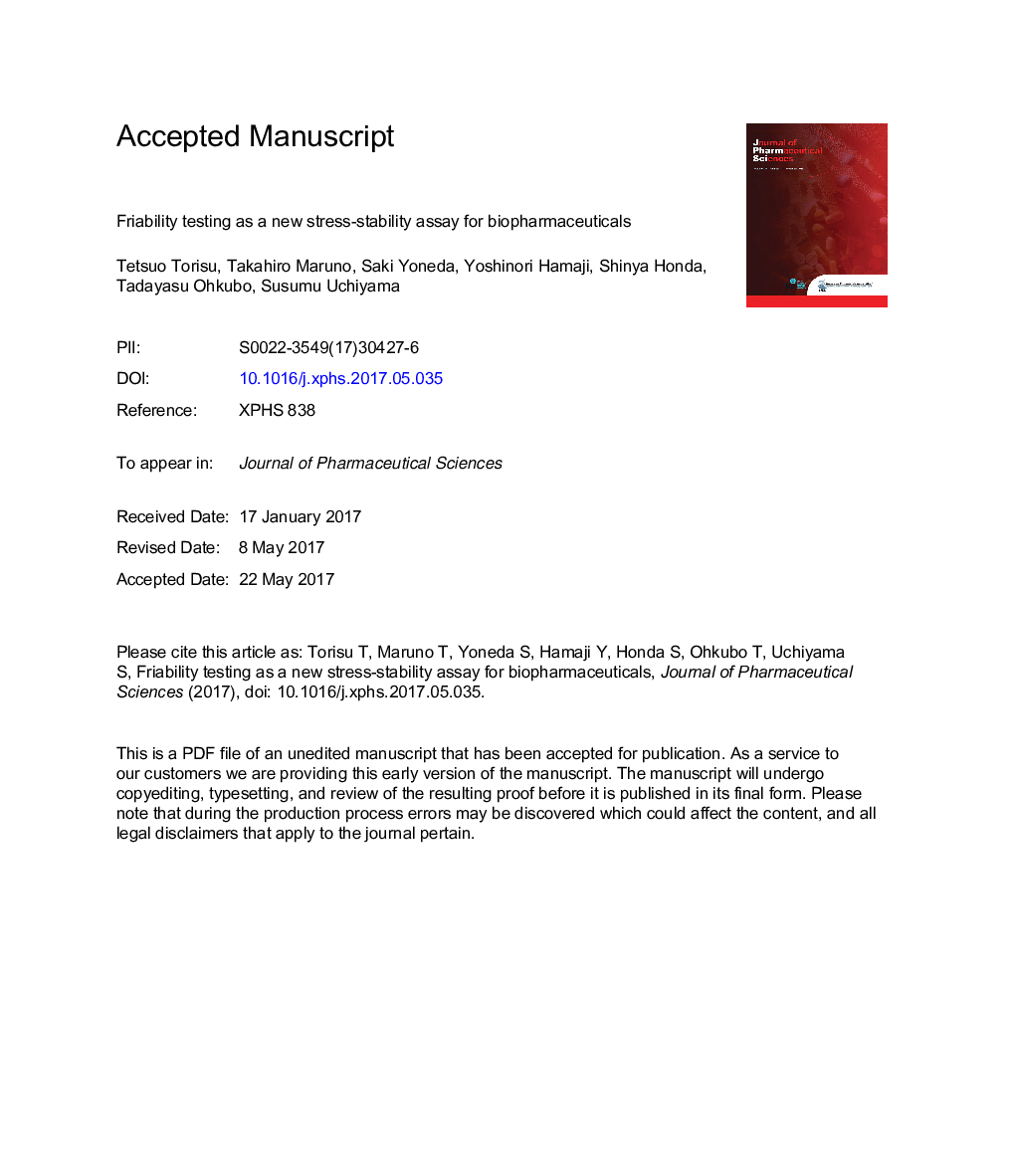| Article ID | Journal | Published Year | Pages | File Type |
|---|---|---|---|---|
| 8513769 | Journal of Pharmaceutical Sciences | 2017 | 60 Pages |
Abstract
A cycle of dropping and shaking a vial containing antibody solution was reported to induce aggregation. In this study, antibody solutions in glass prefillable syringes with or without silicone oil lubrication were subjected to the combined stresses of dropping and shaking, using a friability testing apparatus. Larger numbers of subvisible particles were generated, regardless of silicone oil lubrication, upon combination stress exposure than that with shaking stress alone. Nucleation of antibody molecules upon perturbation by an impact of dropping and adsorption of antibody molecules to the syringe surface followed by film formation and antibody film desorption were considered key steps in the particle formation promoted by combination stress. A larger number of silicone oil droplets was released when silicone oil-lubricated glass syringes containing phosphate buffer saline were exposed to combination stress than that observed with shaking stress alone. Polysorbate 20, a non-ionic surfactant, effectively reduced the number of protein particles, but failed to prevent silicone oil release upon combination stress exposure. This study indicates that stress-stability assays using the friability testing apparatus are effective for assessing the stability of biopharmaceuticals under the combined stresses of dropping and shaking, which have not been tested in conventional stress-stability assays.
Keywords
Related Topics
Health Sciences
Pharmacology, Toxicology and Pharmaceutical Science
Drug Discovery
Authors
Tetsuo Torisu, Takahiro Maruno, Saki Yoneda, Yoshinori Hamaji, Shinya Honda, Tadayasu Ohkubo, Susumu Uchiyama,
